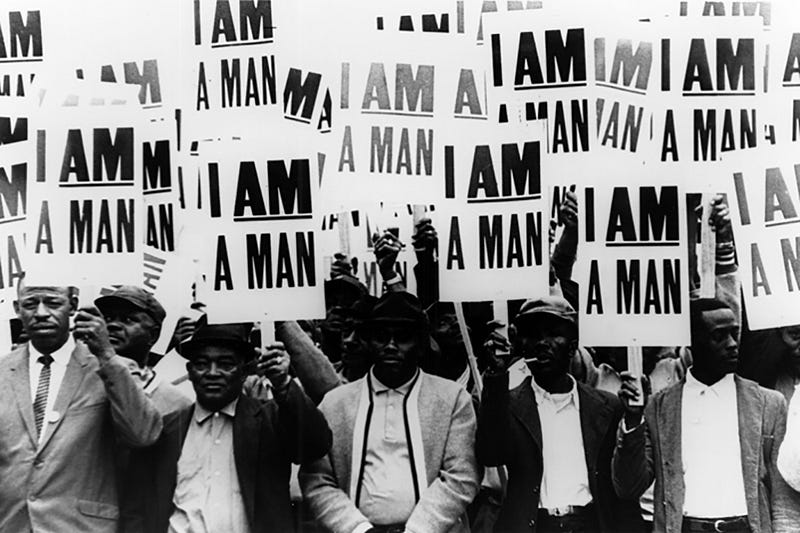The Psychological Mechanisms Behind Dehumanization and Violence
Written on
Understanding the Roots of Dehumanization
Throughout history, dehumanization has often paved the way for horrific acts like slavery and mass murder. This troubling phenomenon allows individuals to perceive others as less than human, as highlighted by the words of those who have experienced war firsthand.
"Many believed that if individuals didn’t speak English and had darker skin, they were not as human as us, so we could act as we wished."
— Specialist Josh Middleton, 2nd Battalion, 82nd Airborne Division
In discussions about dehumanization, we often reflect on the atrocities committed against the Jews during the Holocaust or the brutalities of the transatlantic slave trade. In both instances, systemic racism stripped individuals of their dignity, setting the stage for exploitation and violence.
Mass violence and warfare have been part of human history for centuries, leading philosophers like David Livingstone Smith to argue that the psychological mechanism behind these actions—dehumanization—has identifiable origins. Intriguingly, Smith posits that this issue may be resolvable.
The Origins of Dehumanization
Humans generally feel comfortable killing animals but are instinctively hesitant to harm fellow humans. Smith argues that a distinct psychological mechanism is necessary to overcome the deep-seated aversion people have to treating others as less than human. This mechanism is identified as dehumanization, where individuals are seen as sub-human despite their human appearance.
This radical shift in perception is often rooted in what’s known as “the great chain of being,” a concept that has structured human thought for millennia. Cultures historically ranked everything in a hierarchy, placing gods at the top and mere objects at the bottom. This belief system persists even in contemporary secular and scientific societies, where many still consider humans biologically superior to other species.
With the advent of agriculture, societies became more hierarchical, necessitating a strict division of labor. Smith convincingly argues that dehumanization emerged as a means to capture land and enslave individuals to work it. As tribes evolved into kingdoms, xenophobia flourished, with ancient texts likening foreigners to animals.
Aristotle’s Justification for Dehumanization
In ancient times, dehumanizing language was prevalent and began to take on a philosophical justification. Aristotle, in his work "Politics," distinguished between Greeks and "barbarians." This distinction allowed him to rationalize slavery and justify imperial conquests.
According to Aristotle, the essence of humanity lies in rationality, which he believed was absent in non-Greeks. This notion set the stage for centuries of justifying exploitation and oppression. He stated that some individuals are "by nature" slaves, which provided an intellectual veneer for systemic injustice.
As history unfolded, Aristotle’s ideas influenced thinkers during the Middle Ages, reinforcing the belief that some individuals were inherently less human. This rationale fueled imperial conquests and slavery, perpetuating a cycle of exploitation justified by a warped understanding of human essence.
The Continuing Challenge of Dehumanization
Despite advances in enlightenment, the belief in a human essence persists, casting a long shadow of dehumanization. Smith emphasizes that "human" is a flexible term, which cultures manipulate to serve their agendas. The concept of humanity is often vaguely defined, allowing for interpretations that can devalue others.
Smith critiques prevalent notions of dehumanization, such as viewing people as mere statistics or objects. He argues that true dehumanization involves perceiving someone as less than human, despite their human form.
Dehumanization transcends psychological definitions and encompasses a broader spectrum of human cruelty. Smith's perspective, while insightful, may not capture the full complexity of how humans justify violence against one another.
The Mechanism of Dehumanization
The mechanism of dehumanization operates on the premise that those being dehumanized are seen as lacking access to a particular "truth" understood by the oppressor. This perception can lead to violence, as the dehumanized are viewed as mere tools to achieve a certain end.
This dynamic is evident in various societal conflicts, where individuals are treated as means to an end. This can be seen in modern warfare, where soldiers may be regarded as expendable resources rather than individuals.
A poignant example of this dual dehumanization occurred during the Nazi regime, where Jews were forced to identify themselves and were portrayed as an indistinct mass. The Nazis also dehumanized their own followers, reducing them to mere instruments of the state’s ideology.
Understanding the Ethical Implications
Abraham Lincoln’s debates with pro-slavery advocates highlight the struggle between the recognition of humanity and the exploitation of individuals. He articulated the need to acknowledge the inherent rights of all humans, contrasting the idea of a divine right to exploit with the common right of humanity.
Lincoln’s perspective aligns with Kant's categorical imperative, which urges individuals to treat others as ends in themselves rather than means to an end. This ethical framework underscores the importance of recognizing the freedom and dignity of all individuals.
In conclusion, the process of dehumanization is not merely a psychological phenomenon but a complex social dynamic that involves the denial of humanity to others. As we reflect on the words of war veterans, we see that the challenge of dehumanization is pervasive and requires ongoing vigilance to ensure that we recognize the humanity in all individuals.

This video discusses psychological tricks that can manipulate individuals, offering insights into how perception can be altered.
This video presents six incredible psychology tricks that are effective on everyone, shedding light on human behavior and manipulation.